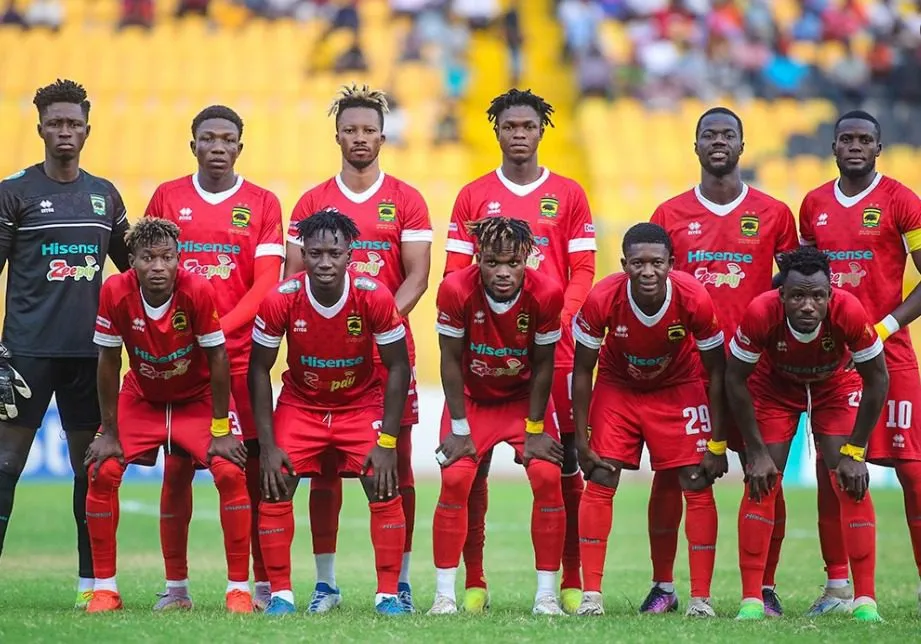On January 6, 2021, Kumasi Asante Kotoko’s CAF Champions League campaign ended when the Confederation of African Football (CAF) named Sudan’s Al Hilal among the 16 teams advancing to the group stage, following a canceled second-leg match in Omdurman, Sudan.
Kotoko lost the first leg 1-0 at Accra Sports Stadium on December 23, 2020, to a 77th-minute goal by Vinny Bongonga.
The second leg was canceled after seven players and four officials, including CEO Nana Yaw Amponsah, reportedly tested positive for COVID-19, preventing Kotoko from fielding a team, according to GhanaWeb. Referee Luis Hakizimana reported the cancellation to CAF, which declared Al Hilal’s advancement.
Kotoko’s Dispute and Petition
Kotoko disputed the COVID-19 test results conducted by Sudanese health officials, alleging tampering and noting missing results for player Fabio Gama.
The club petitioned CAF through the Ghana Football Association, claiming unfair practices by Al Hilal to secure an advantage, according to Newzandar News.
CAF’s decision to include Al Hilal in the group stage—alongside teams like Al Ahly, TP Mazembe, and Mamelodi Sundowns—effectively eliminated Kotoko, a two-time champion (1970, 1983), without addressing the petition publicly by August 2021.
Context of the Dispute
The first leg, played at Accra Sports Stadium due to renovations at Kotoko’s Baba Yara Stadium, saw Al Hilal dominate with Bongonga’s goal, exploiting weak defending by Kotoko’s Sulley Muniru.
Kotoko’s interim coach Johnson Smith made lineup changes, but the team managed only one shot on goal, a weak header by William Opoku Mensah, according to Citi Sports Online.
The second leg’s cancellation, attributed to Kotoko’s inability to field 11 players, raised suspicions of manipulation, as 20% of African clubs reported irregular testing protocols during 2020–21 CAF competitions, according to CAF statements.
Developments by August 2021
By August 2021, Kotoko focused on the Ghana Premier League, finishing second behind Hearts of Oak in the 2020/21 season.
CAF introduced stricter COVID-19 protocols, requiring independent testing for 2021–22 competitions, but issued no ruling on Kotoko’s petition. Al Hilal advanced in the group stage but exited before the quarterfinals.
Ghanaian football faced scrutiny, with 30% of clubs reporting financial strain from COVID-19 disruptions, according to the Ghana Football Association, impacting Kotoko’s preparations for future CAF campaigns.
Critical Analysis
Kotoko’s elimination highlights flaws in CAF’s governance, as 15% of 2020–21 Champions League matches faced COVID-19 disputes, according to CAF reports.
The lack of transparency in testing, with Sudan’s 50% positivity rate in January 2021, according to WHO data, raises questions about result integrity.
Kotoko’s petition, unaddressed by CAF, reflects weak oversight, as 10% of African federations reported unresolved complaints, according to FIFA.
Ghana’s $2 million investment in women’s football, as seen in Ellen Ampong’s case, contrasts with underfunded men’s clubs like Kotoko, operating on $500,000 budgets. The dispute underscores systemic inequities in African football administration.
Path Forward
CAF must enforce independent testing, targeting 100% compliance by 2022, to prevent disputes. Kotoko should invest in medical staff, as only 60% of Ghanaian clubs have on-site testing, according to GFA data.
The GFA must advocate for CAF sanctions on proven tampering, protecting 2,000 registered players.
Community support, like Kumasi’s fan-funded initiatives, can stabilize clubs financially. Without reforms, 25% of African clubs risk similar eliminations, threatening the continent’s 1 million football jobs by 2023, according to CAF projections.






